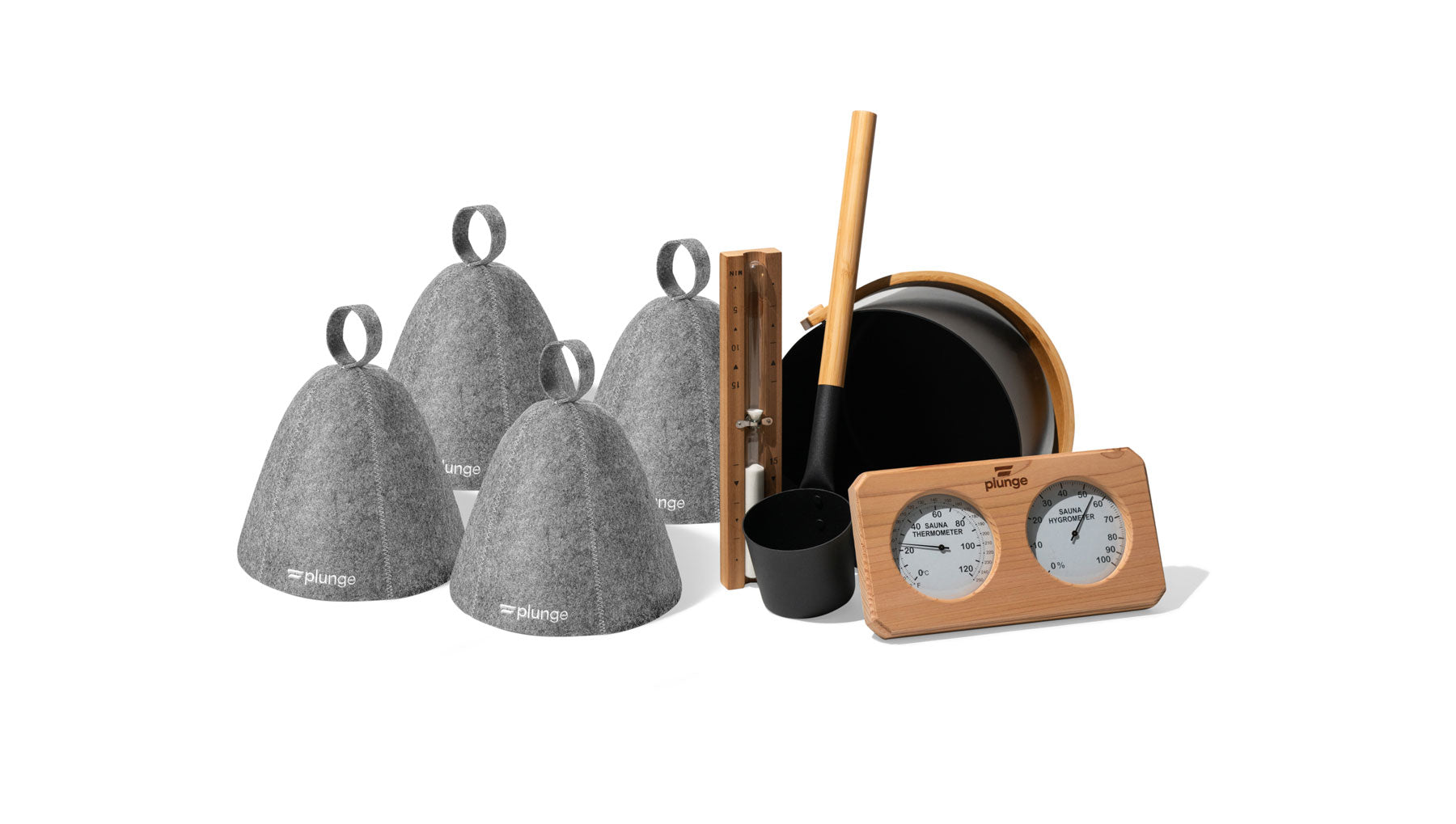
Hormetic Stress & the Benefits of Eustress vs. Distress
The word “stress” often carries a negative connotation — your mind is probably already conjuring images of anxiety and strain. However, that’s an oversimplified view of stress.
Imagine stress as a spectrum, with harmful distress on one end, beneficial eustress on the other, and hormetic stress somewhere in between. By learning about the different types of stress, you’ll be able to harness it and its positive aspects.
What is Stress?
According to the Mayo Clinic, “stress is an automatic physical, mental, and emotional response to a difficult event.” In essence, it’s your body’s natural response when faced with challenges, and it can trigger a cascade of physiological and psychological reactions.
When you’re stressed, your body releases hormones like cortisol and adrenaline (epinephrine), preparing for a “fight or flight” response. These hormones sharpen your focus, dilate your pupils, and increase your heart rate, allowing more blood flow and oxygen to reach your muscles. While acute stress can be beneficial in emergencies, chronic stress can have detrimental effects on health.
Eustress vs. Distress
When you think of the word stress, your mind likely jumps to distress, a negative form of stress. However, there are many different types of stress — and not all forms are bad for you. In fact, eustress is a form of stress that offers many benefits. Let’s define each, their causes, and associated side effects.
What is Distress?
Distress is commonly considered to be a negative form of stress because it typically results from events or circumstances that are perceived as harmful, threatening, or beyond one's ability to cope effectively. Not only can distress cause you to feel anxious or overwhelmed, but it can also result in unpleasant physical and psychological symptoms, including tension, headaches, mood swings, and insomnia.
Distress is essentially a natural alarm system in the body, signaling the need for attention and coping strategies to address the underlying issues causing the stress. It can occur in acute or chronic form and majorly impact behavior. 49% of American adults say increased stress can impact their behavior.
What Causes Distress?
Distress is typically caused by various adverse events or circumstances that overwhelm an individual’s coping abilities. These stressors can be both external and internal. External stressors include situations like financial difficulties, relationship conflicts, work pressure, or major life changes such as divorce or the loss of a loved one. Internal stressors may stem from excessive self-criticism, perfectionism, and more.
Side Effects of Distress
Distress can have a profound impact on your overall health and wellness. Some notable side effects linked to distress include the following:
- Unexpected mood swings: It’s not uncommon for those under distress to experience mood swings. 20% of Americans reported experiencing unexpected mood swings when faced with increased stress.
- A weakened immune system: Long-term stress can weaken your immune system by decreasing your body’s lymphocytes, which fight off infections.
- Tension: When experiencing stress, the body’s muscles naturally tense up to prepare for injury or pain. Being chronically stressed can cause muscles to remain tense for long periods.
- Elevated heart rates and high blood pressure: Distress can also raise your heart rate and result in higher blood pressure.
- Sleep disturbances: Because of some of the side effects above, distress often disrupts sleep patterns, leading to insomnia, poor-quality sleep, and even exhaustion, which can worsen stress levels.
- Digestive problems: Stress may also lead to gastrointestinal problems such as irritable bowel syndrome (IBS), inflammatory bowel disease (IBD), and gastroesophageal reflux disease (GERD).
What is Eustress?
On the other hand, eustress is a form of positive stress characterized by feelings of excitement, motivation, and a sense of fulfillment. Unlike distress, which can be overwhelming and harmful, eustress is considered within one’s capability to manage effectively. When encountering eustress, someone may feel a surge of energy and motivation, which can enhance their overall performance and well-being. Because of this, it’s an essential element for personal growth and can lead to a greater sense of accomplishment and happiness.
What Causes Eustress?
Eustress often occurs when individuals are confronted with challenges or situations that, while demanding, are within their ability to manage and conquer. For example, you might experience eustress when exploring unfamiliar places, playing a sport, getting married, or pursuing a professional goal. Other common causes of eustress include learning new skills, competing in a contest, or buying a new home. While these endeavors can be stressful, they also provide a sense of accomplishment, excitement, and satisfaction.
Benefits of Eustress
Eustress offers numerous benefits that can contribute to your overall well-being and personal growth. More specifically, eustress benefits include:
- Enhanced performance: Eustress can help improve your performance in everything from sports to work.
- More motivation: Eustress can also give you more motivation. It fuels a strong desire to take on challenging goals, persevere through difficulties, and strive for personal excellence.
- Improved resilience: Exposure to eustress fosters resilience, enabling individuals to adapt more effectively to future stressors.
- Better focus: Eustress can also sharpen your senses, giving you the focus required to complete any tasks on your plate.
- A more robust immune system: Eustress can stimulate the immune system, improving its ability to defend against infections and illnesses.
What is Hormetic Stress?
Hormetic stress is a concept in biology and physiology that describes a type of stress that can also be beneficial when applied in moderate and controlled doses. While underexposure to stress won’t provide enough challenge, experiencing too much stress can cause health problems (neither of which are helpful for you or your well-being). Hormetic stress is often referred to as the “sweet spot” between distress and eustress because it lies in the range where stress triggers a positive response in the body, promoting adaptation, resilience, and enhanced functioning.
Benefits of Hormetic Stress
Hormetic stress has garnered increasing attention for its intriguing benefits to human health and longevity. This phenomenon occurs when the body is exposed to mild stressors, prompting adaptive responses that offer numerous advantages.
Notably, hormetic stressors can increase your resilience. Take exercise, for example — when you push yourself during a workout, your body will adapt and become more resilient, meaning you can exercise longer and harder in the future. Hormetic stress can also boost your body’s functioning, enabling you to build a higher tolerance to stress. Some experts believe in cross-adaptation, or the idea that stress resilience from one stressor, can enable the body to adapt to other stressors more readily.
It’s also worth noting that while distress can accelerate the biological aging processes, hormetic stress has the opposite effect. Various hormetic stressors have been proven actually to increase your lifespan. For example, consider the beneficial impact of heat stress induced by sauna use. Studies have shown that the heat stress resulting from regular sauna sessions may extend one’s lifespan while potentially reducing the risk of debilitating conditions like cardiovascular disease and neurodegenerative diseases.
Hormetic stress is also key in activating heat shock proteins, or HSPs. These proteins are responsible for repairing and refolding damaged proteins, which helps our cells maintain their structural integrity. HSPs are also vital for maintaining proteostasis and can even help prevent neurodegenerative disorders and cancer while boosting the health of your brain, heart, and immune system.
How to Activate Hormesis
Hormesis can be incredibly beneficial, and the good news is there are plenty of ways to activate this sweet spot of stress. Examples include:
- Challenging workouts: Taking on challenging workouts, such as high-intensity interval training, can help activate hormesis. However, even regular, moderate-intensity exercise can result in hormesis.
- Breathwork: Controlled overbreathing combined with breath retention exercises can trigger your body to release adrenaline and activate the sympathetic nervous system. Try breathing through your nose in a 1:2 inhale to exhale ratio while activating your diaphragm.
- Intermittent fasting: Restricting your diet by fasting intermittently can trigger mild dietary stress, which, in turn, can lead to various benefits such as improved metabolic health, better brain health, enhanced weight management, fewer age-related diseases, improved blood sugar, and even potential longevity-promoting effects.
- Mentally stimulating activities: Pushing yourself mentally can also activate hormesis. Crossword puzzles, strategy games, video games, and other challenging cognitive activities that challenge you can yield valuable results.
- Heat exposure: Heat exposure can trigger hormetic stress by subjecting the body to controlled and moderate levels of thermal stress. For example, sitting in a sauna can trigger adaptive responses that strengthen resilience, improve cellular repair mechanisms, and provide overall health benefits.
- Cold exposure: Briefly exposing yourself to cold temperatures (such as in an ice bath) can trigger hormetic stress. This is why certain breathing exercises, like the Wim Hof Method, can be so helpful in overcoming some of the stressors that come from this, providing hormetic stress benefits in the long run.
Activate the Benefits of Positive Stress with a Cold Plunge
There are plenty of ways to take advantage of the benefits of eustress and its many mental health benefits, but a cold shock is one of the most effective. Not only can a cold plunge reduce systemic stress, anxiety, and depression symptoms, but it can also provide a host of other physical benefits for everyone, from high-performance athletes to those simply looking to improve their overall wellness.
At Plunge, we offer sleek cold tubs designed to help you harness the power and benefits of cold therapy for mental and physical well-being. Our tubs are equipped with features that make the experience both invigorating and comfortable. Additionally, we also have at-home saunas for those looking to explore the benefits of heat exposure, another hormetic stressor that can complement your wellness routine and improve your mood.
Ready to experience the transformative effects of cold plunge therapy and heat exposure on your mental health and resiliency? Explore Plunge’s range of Cold Plunge Tubs to take the first step toward enhancing your overall wellness today.Medical Disclaimer: The information contained in this post is for informational and educational purposes only. It is not intended to provide medical advice or to take the place of such advice or treatment from a personal physician. All readers/viewers of this content are advised to consult their doctors or qualified health professionals regarding specific health questions or before embarking on any new health or wellness routine, including saunas and cold plunging. Neither the author(s) nor the publisher of this content take responsibility for possible health consequences of any person or persons reading or following the information in this educational content. All viewers of this content, especially those taking prescription or over-the-counter medications, should consult their physicians before beginning any cold plunging routine or other health or wellness program.























